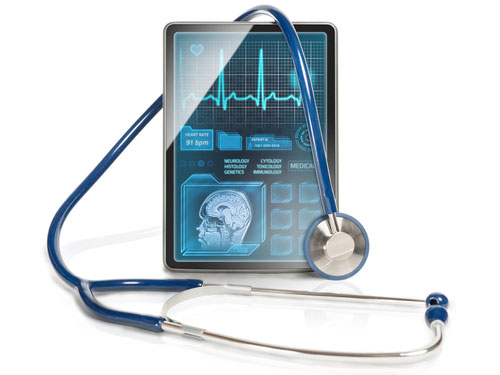Screen time, not face time
Posted: 28 January 2015 |
British patients happy to have webcam consultations – especially the over 55s…


British patients happy to have webcam consultations – especially the over 55s.
Most people would not rule out a consultation with their GP via webcam, research for the Astellas Innovation DebateTM has found.
In a survey for the Astellas Innovation Debate on 29th January, almost a fifth (18%) of the 2,000 people questioned said they would be happy to have a GP consultation via a webcam on their phone or computer in any circumstances. Perhaps surprisingly, willingness to have a “virtual consultation” is highest among older people, the survey suggests: just 7% of under 25’s would be happy to have a webcam conversation with their GP, compared to 22% of the over 55s.
A further 41% said they would be happy to see their GP via webcam in some circumstances. Of these, 72% said they would be happy to have a webcam consultation to order a repeat prescription, and 71% would be happy to receive test results in this way.
Two thirds (65%) of people would be happy to discuss a minor ailment via webcam, and six in ten (60%) would discuss an ongoing condition in this way. However, some 42% said they would only consider an online appointment if it meant they were guaranteed an appointment that day.
And when it comes to embarrassing conditions, it seems face-to-face consultation becomes more important, with only 18% of people wanting to discuss a problem such as head lice or a rash via webcam.
The findings come from a survey of 2,000 people for the Astellas Innovation Debate 2015,organised and funded by Astellas, which on Thursday 29th January brings together a panel of world-renowned experts at The Royal Institution of Great Britain to discuss the implications for our health of the revolutions in data and DNA .1
Among the reasons given by the third (33%) of people who would not be happy to have a GP consultation via webcam were: they wanted to discuss their condition properly face to face (70%); they needed a physical examination (55%), or they were concerned that a serious illness might not get identified if they spoke to their GP electronically (38%). Just 14% said it was because they didn’t have access to a webcam or the internet.
Commenting on the survey findings, the doctor and broadcaster, Dr Kevin Fong, said:
“The digital revolution has changed the way we think about most forms of human interaction, including our relationship with our doctors. It seems that people are more willing to embrace new ways of accessing health services than the medical profession sometimes assumes.
“What’s particularly interesting about the Astellas Innovation Debate research is that we tend to think of younger people as the most digitally literate, but it’s the over-55s who are most willing to interact with their doctors via webcam.”
At present only 3% of GP’s offer patients consultations via webcam, although 36% plan to start doing so over the next three years as the NHS gears up to go paperless. However, 62% of GP’s said that, they were unlikely to be able to offer online patient consultation by 2018.2
The Astellas Innovation Debate: i-Genes – What the DNA and Data Revolutions mean for our Health, will take place on Thursday 29th January 2015 at the Royal Institution of Great Britain. Organised and funded by Astellas, the Debate provides a collaborative platform where everyone can come together to discuss the role of innovation in solving the greatest challenges of our time.
George Freeman, MP, the Minister for Life Sciences, will give the keynote speech, outlining the Government’s aim to develop, assess and adopt new drugs, devices and diagnostics as we move towards 21st century of personalised healthcare.
This year’s Debate will be chaired by Jonathan Dimbleby. The panel of world-leading experts will include: American biologist Dr Leroy Hood, whose leadership led to automated DNA sequencing; human rights activist Baroness Helena Kennedy, QC; Professor Lionel Tarassenko, CBE, Head of Engineering, University of Oxford, and Professor Rolf A. Stahel, President of the European Society for Medical Oncology. They will discuss:
- The possibilities these new genetic insights offer for our health
- Whether we can afford the full range of medicines personalised healthcare would demand
- The implications for health professionals – will a mass of data from new technologies create a new army of the worried well and swamp doctors?
- With more of our health data digitised, how long before it falls into the wrong hands?
- At what point does smart care become intrusive surveillance?
- Whether the effort put into these frontiers of medicine diverts resources from the real crises of modern healthcare – such as obesity, antibiotic resistance and neurodegenerative disease?
For further information, visit www.innovationdebate.com, or join the debate on Twitter (@Astellasinnov8 #iGenes)




